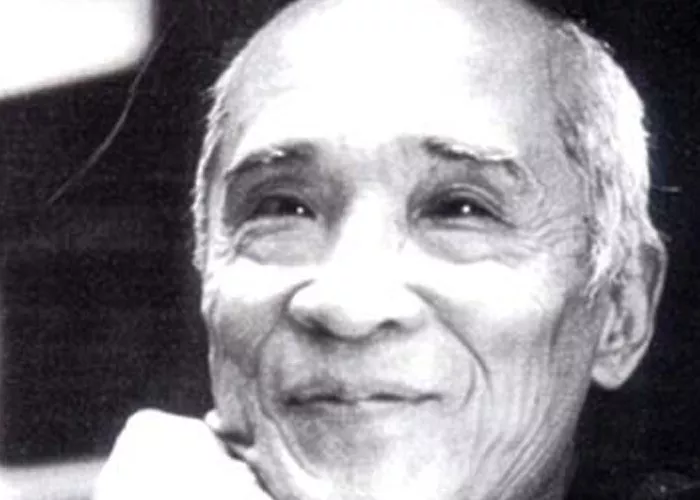Welcome to Poem of the Day – Tatters by Shuntarō Tanikawa.
Shuntarō Tanikawa’s poem Tatters stands as a powerful testament to the fragility and fleeting nature of words, thoughts, and perhaps even existence itself. In this short, yet profound piece, Tanikawa invites the reader to contemplate the delicate beauty of language and its impermanence. Through an evocative narrative that begins in the darkness of “before daybreak” and culminates in the imagery of tattered words, the poem becomes a meditation on the process of creation, disintegration, and the ceaseless flow of human expression.
Tatters Poem
Before daybreak
Poem
came to me
robed in
tattered
words
I have nothing
to offer him I just
gratefully receive his gift
a broken seam
allowed me a momentary peek at
his naked self
yet once again
I mend
his tatters
Tatters Poem Explanation
This setting suggests the liminal time between night and morning, a moment when the world is still, suspended in uncertainty, much like the state of consciousness in which the poem is conceived. Daybreak is not yet fully realized; the arrival of light is imminent, but has yet to materialize. This ambiguity invites a sense of mystery, framing the poem as a moment of transition—a threshold between darkness and light, between silence and expression.
The second line introduces the core theme of inspiration. The poem here is personified as something that arrives unexpectedly, almost as though it has a life of its own. It comes not by force, but as a gentle presence that emerges from the silence, perhaps as a fleeting thought or a whispered fragment. The phrase “came to me” suggests that the poet is merely the conduit through which this “Poem” passes, reinforcing the idea that inspiration is an external force, beyond the poet’s full control. There is a humility in this, as if the poet is aware of their own limitations in capturing the essence of what is being revealed.
However, as the poem progresses, the image of the poem becomes more fragmented. The line uses the metaphor of clothing to describe the state of the poem. Words, which are typically considered the building blocks of poetry, are depicted here as worn and broken, their fabric torn and frayed. The word “tattered” emphasizes imperfection, suggesting that the language of the poem is not pristine or whole, but rather damaged or incomplete. This sense of imperfection mirrors the human experience, where even our finest attempts at expression often fall short of capturing the full depth of our thoughts and emotions.
The Metaphor of Tatters
The image of words being “tattered” is rich with symbolism. It suggests the impermanence of language—words, like fabric, can fray and lose their meaning over time. In a broader sense, the metaphor of tatters could be seen as a commentary on the fleeting nature of human existence itself. Just as the fabric of a poem can unravel, so too can the fabric of life, subject to wear and tear, to time’s inevitable erosion. Yet, within this image of disintegration, there is a certain beauty. The “tattered” words may no longer have the same clarity or coherence as they once did, but they still exist. They still have the potential to convey meaning, even if imperfectly.
Tanikawa’s use of “tattered” suggests a deep awareness of the limitations of human expression. The poet does not claim to possess complete mastery over language. Rather, the poem’s fragmented state mirrors the fragmentary nature of human thought and experience. Just as we struggle to articulate our innermost feelings, so too do the words in the poem struggle to come together in any coherent or structured way. This gives the poem a raw, vulnerable quality—one that feels more authentic because of its imperfections.
Themes of Ephemeral Nature and Creation
At its core, Tatters grapples with the transient nature of both language and inspiration. The poem begins in a moment of stillness, but as it progresses, the language becomes more broken, more fragmented, and more reflective of the fragility of human experience. In this way, the poem invites the reader to reflect not only on the fleeting nature of words but also on the passing of time, the decay of the physical world, and the inevitable dissolution of all things.
Yet, within this contemplation of fragility, there is an implicit sense of hope. The poem, though made of “tattered words,” still manages to express something meaningful. The words may be broken, but they still “speak” to the reader, suggesting that even in their fractured state, they have the power to convey emotion and truth. This evokes the idea that beauty can exist in imperfection, and that the act of creation itself—no matter how incomplete—is valuable. Even the most “tattered” words can carry meaning.
Conclusion
Shuntarō Tanikawa’s Tatters is a poignant exploration of the fragility of language and the impermanence of all things. Through the imagery of tattered words, Tanikawa presents a meditation on the transitory nature of both thought and expression. The poem, though brief, is deeply reflective and rich with meaning, urging readers to appreciate the beauty in imperfection and to recognize the profound significance of even the most fleeting moments of inspiration. By portraying poetry as a fragile and fragmented entity, Tanikawa reminds us that language, like life itself, is subject to decay, yet it continues to speak to us, in all its tattered glory.

